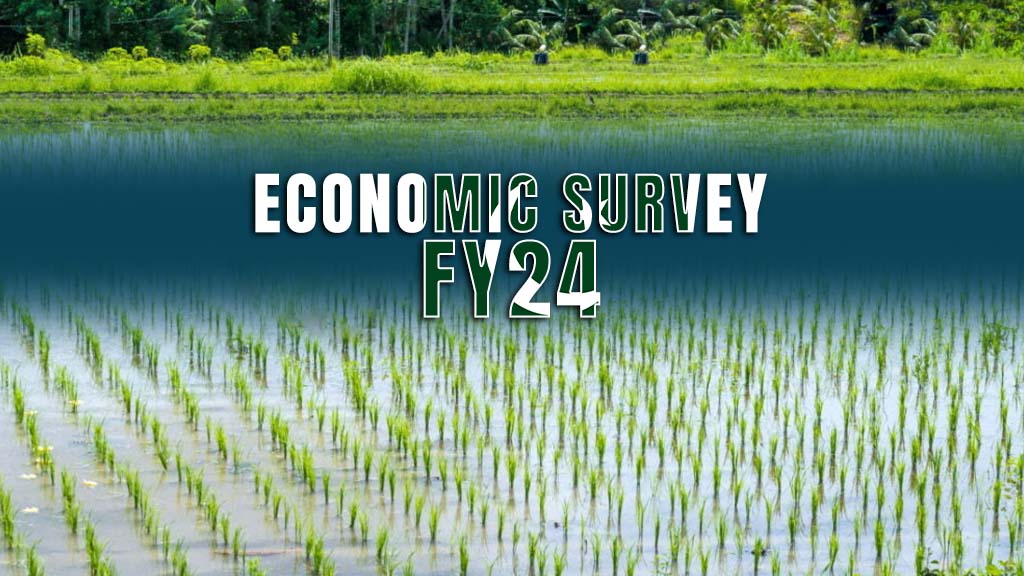- Web Desk
- Today

Pakistan Economic Survey FY24 highlights agriculture as key growth driver
-
- Web Desk
- Jun 11, 2024

ISLAMABAD: The recently released economic survey of Pakistan Economic Survey FY24 sheds light on the significant role played by the agricultural sector in driving economic growth.
According to the survey findings, the agricultural sector witnessed a remarkable expansion of 6.25 per cent, emerging as a key driver of overall economic prosperity.
This growth can be largely attributed to a notable surge of 16.82 per cent in the production of vital crops such as wheat, rice, and cotton. Notably, this surge marks the highest increase in agricultural output in the past 19 years, underscoring its substantial contribution to the country’s economic development.
Pakistan boasts a diversified economic base, with the agricultural sector contributing 24 per cent to the Gross Domestic Product (GDP) and 37.4 per cent to employment. Such statistics underscore the pivotal role of agriculture in driving economic growth, generating employment opportunities, and reducing poverty, given its extensive linkages with other sectors of the economy.
The Economic Survey highlights the promising performance of crop production during the Kharif season of 2023, which witnessed steady export growth, particularly led by rice. Furthermore, a significant decrease in cotton imports was observed owing to improved domestic output.
Factors such as credit facilitation, certified seeds, increased fertiliser use, and enhanced on-farm management techniques played pivotal roles in achieving better crop yields, which could be sustained pending favorable government policies and farmers’ self-reliance.
Motivated by better economic returns, farmers are increasingly diversifying into alternative crops, signaling a positive trend in agricultural practices. The government’s focus on enhancing crop yields through mechanisation and ensuring food security underscores its commitment to prioritising the agricultural sector’s development.
In line with this commitment, targeted subsidies for purchasing inputs at affordable prices and the announcement of support prices where necessary aim to ensure the profitability of farmers.
Moreover, the inclusion of the agriculture sector as a primary focus of the Special Investment Facilitation Council (SIFC) reflects the government’s determination to strengthen the sector and make it the backbone of the economy.
However, challenges such as changing climatic patterns and natural disasters pose threats to agricultural productivity, emphasising the importance of implementing effective mitigation and adaptation measures.
In summary, the agricultural sector in Pakistan has demonstrated robust growth in the fiscal year 2023-2024, with significant increases observed across various crop categories. The sustained performance of the livestock sub-sector and modest growth in forestry and fishing further contribute to the sector’s overall stability and resilience.
With concerted efforts from both the government and farmers, the agricultural sector is poised to continue driving economic growth and fostering sustainable development in Pakistan.






